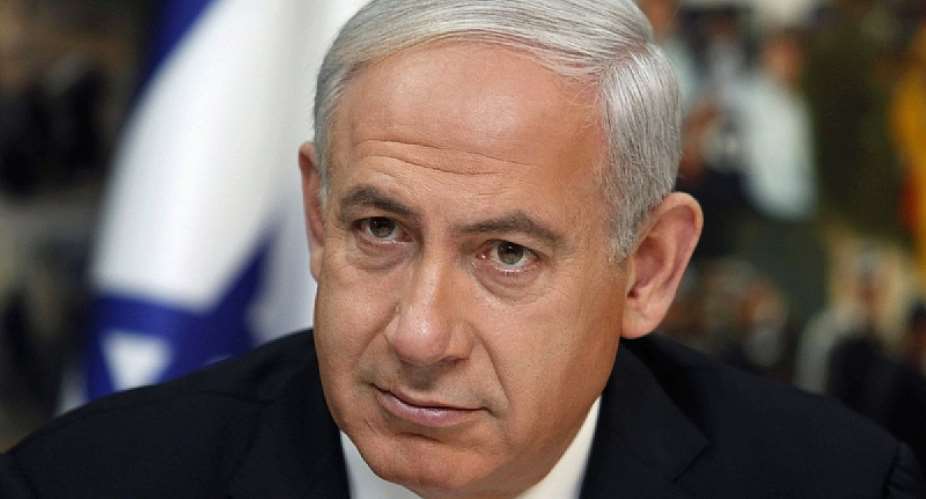Tel Aviv, March 18, (dpa/GNA) - Prime Minister Benjamin Netanyahu is looking to form a right-wing coalition government after his nationalist Likud party performed better than expected in Tuesday's election.
"We achieved a great victory for the nationalist camp, headed by the Likud," a beaming Netanyahu told supporters at his Tel Aviv campaign headquarters shortly after midnight.
He said he already reached out to leaders of smaller parties in the wider right-wing bloc and urged them to quickly set up a coalition, which he insisted should be "strong and stable."
The Likud received about 27 seats, according to exit polls. Labour received a similar amount but the result is a blow to the centre-left party, which most analyst say needed a wide gap ahead of Netanyahu if it wanted to form the next government.
"Given the present atmosphere, most likely we will have a right-wing government," said Avraham Diskin, a political analyst and professor at Hebrew University.
However, Isaac Herzog, the Labour leader, who promised to also make attempts to form a coalition, refused to concede defeat.
"As we wait for the real results, everything is open," he told supporters of his Zionist Camp list, which was a merger with former justice minister Tzipi Livni.
The two had hoped that together they could unseat Netanyahu, who has been premier since 2009 and also served as prime minister in the 1990s.
Netanyahu, about whom some had predicted his political career might be hitting a serious obstacle, appeared to gain at the expense of the smaller, more hardline, right-wing parties.
Moshe Kahlon's centre-right Kulanu party, a break-away from the Likud which gained about 10 seats, is expected to play king-maker, with analysts saying he would be under pressure to join a Netanyahu-led government.
Senior Likud official Silvan Shalom said the party will seek to set up a government with right-wing, nationalist parties and ultra-orthodox groupings, aiming to have at least 63 members in the coalition.
"Israel has said today a very clear yes to Prime Minister Netanyahu and the Likud," Shalom, a minister, told reporters.
He was reflecting sentiment on the ground among many who voted for the party. At the campaign headquarters, jovial Likud activists said the elections were a positive surprise, with many chanting slogans against a unity government with Labour.
"We are very satisfied," said Bat-El Binyamin, 25, from the Jewish settlement of Ariel on the northern West Bank.
"I believe that there will be a right-wing nationalist government led by Netanyahu," she said.
Analysts cautioned that the next government will still take time to form and Netanyahu may be wary of forming a hard right government, which could bring pressure from European governments and Washington, and instead would seek a moderate partner.
Ahead of the elections, many voters had expressed concerns over the rising cost of living. Social-economic demands could weigh on considerations for the next government and Netanyahu in his victory speech pledged to address citizens' financial plight.
Turnout for the election was higher than in the previous election, in 2013, coming in at more than 71 per cent.
The Joint List, a grouping of largely Arab parties, came in third place, with about 13 seats, according to the exit polls, which are seen as generally reliable. The grouping said it was keen to prevent a return of Netanyahu to power.
The outcome of the elections could make reviving a stalled peace process with the Palestinians very complicated.
Netanyahu pledged the night before the voters went to the polls, under pressure from parties to his right, that he would not allow a Palestinian state to be established.
A former Likud official said that Netanyahu may not entirely abandon some form of attempt to negotiate with the Palestinians.
"He will likely say that the Palestinians are not ready to consider serious compromises," the veteran said.
Lisa Goldman, a fellow at the New America Foundation, a Washington DC based think tank, said the US administration likely "won't touch" a new peace process effort with Netanyahu back in office.
"I think there will be just a continuation of the status quo," Goldman said.
GNA





 Dumsor: Don't rush to demand timetable; the problem may be temporary — Atik Moha...
Dumsor: Don't rush to demand timetable; the problem may be temporary — Atik Moha...
 Space X Starlink’s satellite broadband approved in Ghana — NCA
Space X Starlink’s satellite broadband approved in Ghana — NCA
 2024 election will be decided on the grounds of the economy; choice of running m...
2024 election will be decided on the grounds of the economy; choice of running m...
 Dumsor: We're demanding less; just give us a timetable — Kwesi Pratt to ECG
Dumsor: We're demanding less; just give us a timetable — Kwesi Pratt to ECG
 Do I have to apologise for doing my security work, I won’t – Simon Osei-Mensah r...
Do I have to apologise for doing my security work, I won’t – Simon Osei-Mensah r...
 All my businesses have collapsed under Akufo-Addo — NDC Central regional chair
All my businesses have collapsed under Akufo-Addo — NDC Central regional chair
 Military, Prison Officers clash in Bawku, three injured
Military, Prison Officers clash in Bawku, three injured
 GRA-SML contract: MFWA files RTI request demanding KPMG report
GRA-SML contract: MFWA files RTI request demanding KPMG report
 Court threatens to call second accused to testify if NDC's Ofosu Ampofo fails to...
Court threatens to call second accused to testify if NDC's Ofosu Ampofo fails to...
 Family accuses hospital of medical negligence, extortion in death of 17-year-old...
Family accuses hospital of medical negligence, extortion in death of 17-year-old...
